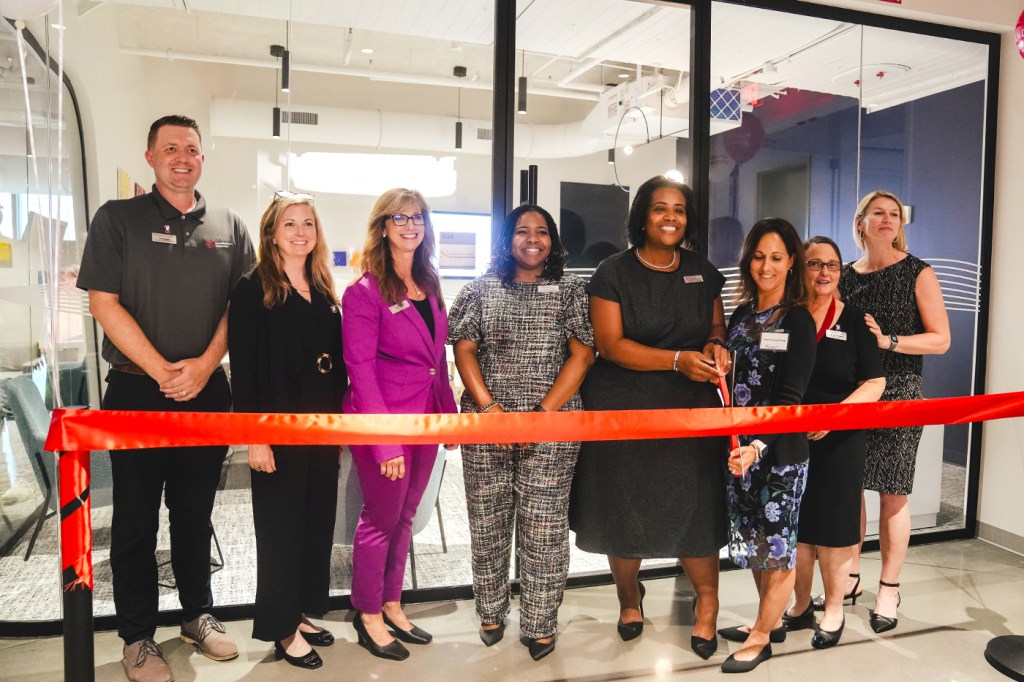A new center on the Charlotte campus will help people find their voice
Services at the center are provided by student clinicians who are supervised by licensed speech-language pathology faculty.

Northeastern’s Charlotte campus held a ribbon-cutting ceremony last month for its new Speech-Language Center, which will offer experiential learning opportunities to graduate students and essential services to the community.
The first of its kind speech language center in the Charlotte region, Northeastern’s new facility is offering services tailored not only to patients’ speech language pathology needs but also to their cultural and linguistic background.
A big part of that is differentiating a language disorder from a language difference, says Toya Foggie, clinic director and assistant clinical professor at Northeastern.
“Clinicians recognize that variations in language use, dialects, accents and communication styles may exist within different cultural and linguistic communities.” “(This) is a crucial aspect of clinical assessment in speech-language pathology,” Foggie says.
Faculty and staff members participated in the opening, including Chris Smith, associate director of operations; Leslie Sykes, director of strategic partnerships; Angela Hosking, regional dean and CEO; Nia Johnson, assistant program director; Sarah Young-Hong, undergraduate and graduate program director; Peg Bernhard, associate dean for campus administration; Emily Zimmerman, chair of the Department of Communication Sciences and Disorders; and Foggie.
Services at the center are provided by student clinicians who are supervised by licensed speech-language pathology faculty.
The center’s speech-language pathologists will also use interpreters during the assessment process (when necessary) and will consult with bilingual speech-language pathologists to accurately assess a patient’s needs.
“The (center) employs a culturally and linguistically sensitive approach to differentiate between language disorders and language differences, aiming to provide accurate diagnoses and individualized intervention plans that address the unique needs of each client,” Foggie says.
To help the community learn more about access to treatment, Northeastern Speech-Language Center plans to partner with local organizations, schools, churches, and community centers to provide information sessions on speech and language disorders, communication challenges and available services.
“By implementing these outreach strategies, the (center) can effectively reach BIPOC communities, address barriers to care, and promote awareness, acceptance, and access to speech-language services for all individuals,” Foggie says.